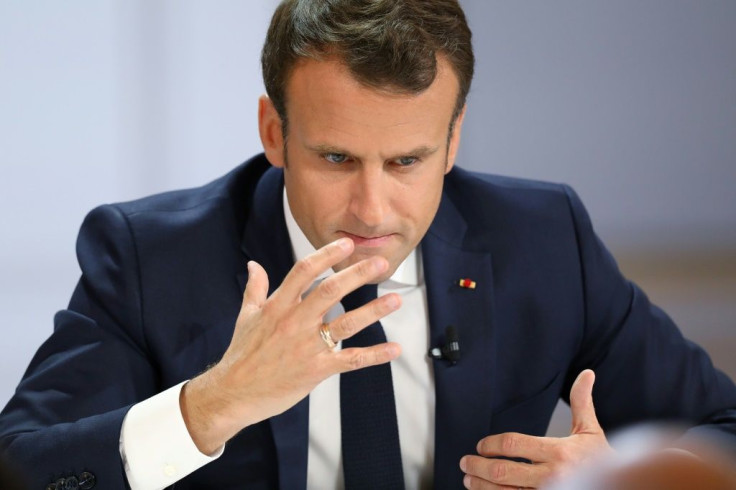France's 2020 Budget Caught Between 'Yellow Vests', Reform Pledges

The government of French President Emmanuel Macron is set to unveil Friday a draft 2020 budget that promises big tax cuts for the working classes, fulfilling a key pledge to end six months of "yellow vest" protests while still cutting the deficit to within EU limits.
Macron, who swept to the presidency in 2017 with a pledge to get the country back on solid financial footing, was caught short by the "yellow vest" movement which accused the former investment banker of ignoring the day-to-day struggles of many French.
After months of street protests that often spiralled into rioting and battles with police, Macron unveiled tax cuts, wage increases and other measures worth 17 billion euros ($18.7 billion) for low-income households.
That is expected to push this year's deficit to 3.1 percent of gross domestic product, making France the only eurozone member to exceed the bloc's three percent limit -- even as countries like Germany, the Netherlands and Portugal are likely to post surpluses.
The money for the yellow vests -- who are also demanding improved public services -- also makes it unlikely Macron will honour his campaign pledge of balancing the government's books in 2022.
"The government abandoned its strategy of reducing France's structural deficit in the aftermath of the yellow vests," Charles de Courson, an independent lawmaker respected on both the right and left for his public finance acumen, told AFP.
He warned that Macron's about-face on spending could be seen by France's European partners "that they can't really trust us."
And the government has already admitted France's debt mountain will barely budge next year from 98.7 percent of GDP -- far above the 60 percent or less demanded of eurozone members.
'Forced' to respond
Nevertheless, the fiscal relief has helped sustain French growth, expected to reach 1.4 percent this year even as Germany risks falling into recession.
And Budget Minister Gerald Darmanin said this week that the creation of a pay-as-you-go income tax system, which did away with self-reporting months after the fiscal year-end, had brought a two-billion-euro windfall to state coffers.
Next year, the government expects the deficit ratio to fall back to 2.2 percent on stable economic growth of 1.3 percent, even as five billion euros in new tax cuts kick in for some 12 million households, and corporate taxes are cut further.
The government has already indicated that defence and security spending will increase next year, offset by cuts at the finance and budget ministries, and reduced funds for local authorities.
Yet Macron has abandoned his pledge of slashing 50,000 central government jobs during his five-year term, with Darmanin conceding last July that only 15,000 would be cut.
"France has chosen the right economic policies, even if it was forced to do so" because of the yellow vest revolt, said Philippe Waechter, chief economist at Ostrum Asset Management in Paris.
"We have a European economy that's slowing quite rapidly, and you're not going to reverse this by cutting back even more," he told AFP.
Stubborn debt
Further spending cuts will prove difficult as Macron tries to shake off his image as "president of the rich," which has stuck mainly from his move to cancel a wealth tax on high earners early in his presidency.
Already this week his government backtracked on a plan to scrap a relatively small tax break for elderly people hiring home help after a public outcry.
With a contentious pension reform plan now in the works that has already prompted major strikes, analysts expect Macron to be loath to take too big a knife to government spending.
"Because part of the yellow vest revolt was fuelled by a sense of fiscal injustice... something had to be done for the middle class and low earners," said Alain Trannoy, a researcher at France's EHESS social sciences university.
"Since interest rates are low, the government is right to let the deficit go a little bit," Trannoy added.
"But at the end of his term, the results in terms of cutting spending will be pretty thin," he said.
© Copyright AFP {{Year}}. All rights reserved.





















